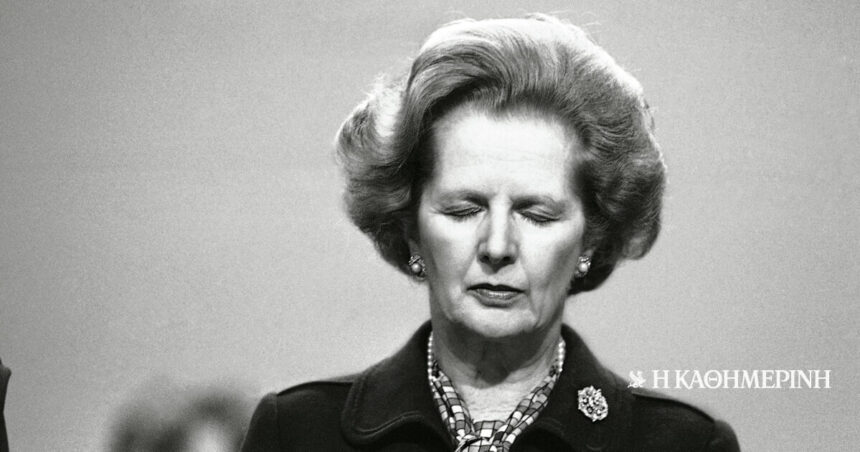The bomb attack on Brighton’s Grand Hotel, which took place on October 12, 1984, is one of the most dramatic episodes of the United Kingdom’s political history. The attack, aimed at the murder of then Prime Minister Margaret Thatcher and members of her government, was organized by the Irish Democratic Army (IRA). Despite his failure to hurt Thatcher, the event remained in history as a reminder of political violence that struck the relationship between the United Kingdom and Northern Ireland.
In the 1980s, the conflict in Northern Ireland, known as “The Troubles”, was at its peak. The confrontation between the nationalists, who demanded the union with Ireland, and the United, who sought to preserve the region as part of the United Kingdom, had caused tens of thousands of deaths. IRA, as an armed organization of the nationalist movement, attacked attacks both in Northern Ireland and on the territory of Britain. The violence that accompanied the conflict was not geographically or strategically limited, but aimed at undermining the British state at various levels. On the other hand, Margaret Thatcher had emerged as a leading form in British politics, known for her strict policy towards the IRA. He had rejected the requirements for a special status of Irish prisoners, which led to the 1981 hunger strike, during which ten IRA members died, including leader Bobby Sands. The death of prisoners has turned into a political tool to secure support for the Irish case, deepening divisions and intensifying the IRA’s determination to take spectacular actions. Thatcher’s attitude had caused strong feelings of hatred among IRA supporters, making the main goal for the organization.
The Prime Minister escaped untouched
The bomb attack at the Grand Hotel took place during the annual Conservative Party Congress in Brighton, an event that attracted the party’s foam. IRA, several weeks before the event, had installed an explosive mechanism with a long -term timer, which was activated in the early hours of October 12. The explosion destroyed much of the hotel, killing five people and injuring dozens of others. Among the victims were Antoni Barry, a member of the British Parliament, as well as several relatives. Thatcher, who was at the hotel and was still working at that time, escaped unhappy, as her suite was not affected by the explosion. Despite the attack, Thatcher insisted on pursuing her schedule normally and delivered her central speech just hours later, reinforcing her image as a steady leader. In her speech at the Conservative Party Congress, on the afternoon of the same day, she said: “(The bomb attack) was an attempt not only to stop and end our conference; it was an attempt to paralyze the democratically elected government of the same majesty. This is the range of indignation we all shared, and the fact that we are concentrated here now, shocked but formed and determined, is a sign, not only that this attack has failed, but that all efforts to destroy democracy through terrorism will fail. “
Despite his failure to hurt Thatcher, the event remained in history as a reminder of political violence that struck the relationship between the United Kingdom and Northern Ireland.
It is worth noting that the speech, which was largely rewritten by the prime minister after the bomb attack, did not contain attacks on opposition parties. Thatcher had also deleted from her manuscript all the humorous statements and spikes addressed to opposition politicians, which she usually included in her speeches.
In a letter to Thatcher, Neil Kino, then, in a letter to Thatcher, expressed his disgust for the attack, stating: “I share your determination that the perpetrators of this reckless act of violence will not succeed in undermine our democracy.”
Target Political destabilization
The attack was part of an IRA strategy that combined violence with political influence, aiming to transport war beyond the Northern Ireland border. The responsibility of the organization was accompanied by the following iconic statement: “Today we were not lucky, but remember that we should be lucky only once, and you must always be lucky.” This statement has shown the determination of IRA to hurt the British state mechanism as well as his personal hostility to Thatcher. The attack was intended to highlight the vulnerability of the British government and to underline the continued resistance of the IRA. At the same time, it was part of his strategy to convey the conflict beyond the border of Northern Ireland, pressing the government for negotiations through terrorist attacks. It turned out that the British state mechanism remained strong, despite frequent attacks, while IRA’s hopes for rapid political change were denied.
Stricter security measures
IRA’s failure to assassinate Thatcher was considered by some blows to the organization, but the attack has had multiple consequences on the political scene and public opinion. Thatcher took advantage of the fact to reinforce its position as a harsh and decisive leader, rallying its supporters. The attack also contributed significantly to the adoption of stricter security measures at political events, as it was realized that the political elite was not immune to terrorist threats. At the same time, he triggered a heated debate on the United Kingdom policy in Northern Ireland, with some commentators calling for tougher repression and others to emphasize the need to negotiate peace.
The IRA’s assumption was accompanied by the following statement: “Today we were not lucky, but remember that we should be lucky only once, and you must always be lucky.”
The British prime minister, surviving a murder attempt, was also influenced by the psychological trauma of the attack. In texts she later wrote, she said that for several months she had a lens next to her bed when she stayed out of the house to reproduce the feeling of light that remained open at the Grand Hotel shortly after the explosion.
Need to find a diplomatic solution
The bomb attack on Brighton has sparked strong reactions at national and international level. Inside Britain, Thatcher took advantage of the fact to reinforce its rhetoric of order and security, while the conservative party was more united against external threats. At international level, the attack has raised concerns about the spread of political violence in Europe. At the same time, it has set the debate on the nature of terrorism and the role of states in dealing with it. For Ireland, the attack was a turning point, as it strengthened the pressure on the Irish government to get more actively involved in the management of the conflict. The bomb attack on the Grand Hotel remains a reference point for understanding how political violence can shape politics and cause changes in society. Although the British government refused to succumb to the IRA demands, the attack underlined the need for a diplomatic solution in the Northern Ireland conflict.

The incident is considered part of the “long war” in Northern Ireland, with the long -standing conflict of Northern Ireland finding a way out through the 1998 Good Friday agreement, which emerged from political and diplomatic processes, which would not have been unbearable without the pressure. However, the cost of these events, both in human lives and in the burglary of social cohesion, remains heavy.
The bomb attack in Brighton in 1984 (“The most bold attack on a British government by the pyrite conspiracy” in 1605, according to the Telegraph newspaper) is one of the most typical examples of terrorism that defined the 20th century. Although it failed its main goal, it was able to highlight the cruelty of the IRA and the rupture between Britain and Ireland. Margaret Thatcher’s determination to continue her policies, despite the attack, reinforced her political prestige, while the tragedy of the victims was a reminder of the cost of violence.
*Mr. Alexandros Nafpliotis is a Doctor of International History of London School of Economics and Political Science and teaches diplomatic history at the Hellenic Open University.
** Curated by: Evanthis Hatzivasiliou




